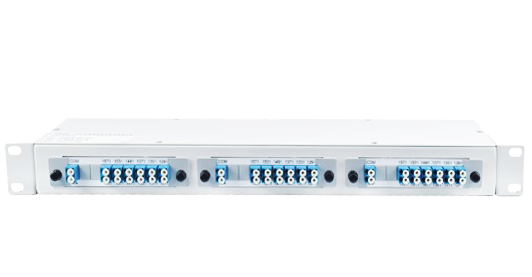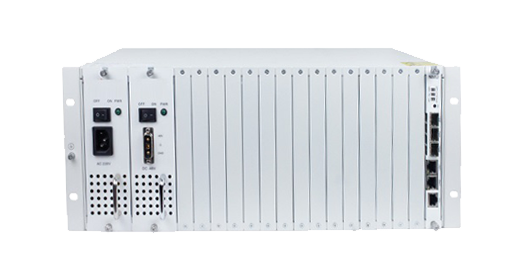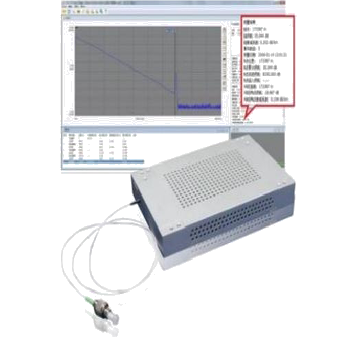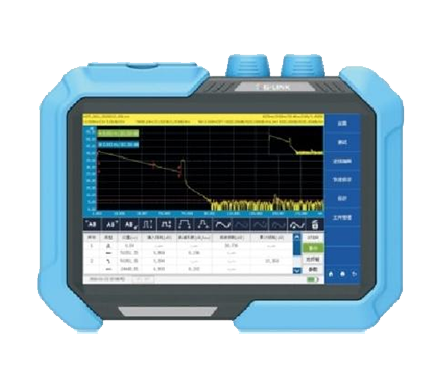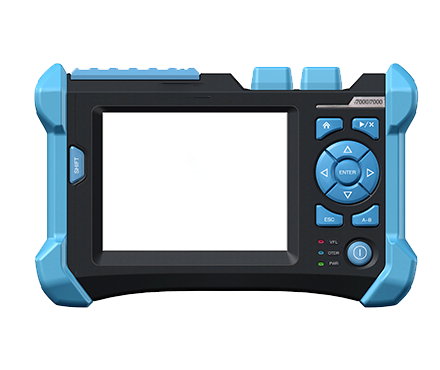CWDM/DWDM System products are a new generation of optical network platform with large capacity and multi-service access launched by Visint®. The platform has the characteristics of high business integration, high port density, rich business types and flexible configuration. It also supports SNMP-based C/S architecture graphical management interface, which provides a very clear fault location for management and maintenance and saves maintenance cost. It is widely used in telecommunication, radio and television, power, education, cloud computing and information security, etc. It is oriented to all-optical network and applied to the construction of national, inter-provincial and intra-provincial trunk lines, local metropolitan area network and various special networks. The platform has the characteristics of independent and transparent transmission signals, combined transmission of multi-channel signals, saving optical fiber resources, safety and reliability, and can help customers set up a network with long-distance, high reliability, safety and flexibility, disaster-resistant optical transmission which is a good solution to cope with the shortage of optical cable resources.
CWDM/DWDM System products are mainly used in the backbone core layer, metro core layer, metro aggregation layer, access layer and data center interconnection, etc. To achieve multi-service, large capacity, full transparent transmission function, which can meet the needs of operators for ultra-large capacity and ultra-long distance transmission, and provides a stable platform for operators to operate in multiple services and upgrade and expand the network in the future.
Application 1: Point-to-Point Networking
Point-to-point transmission utilizes one or two core optical fiber resources to multiplex dozens of times of optical fiber channel to realize the transmission of multiple different types of services (SDH, SONET, Internet, SAN, etc.) in one or two core optical fibers.

Figure 1: Point-to-Point Networking
Application 2: Chain Networking
Chain transmission uses wavelength division multiplexing (WDM) equipment and optical add-drop multiplexing (OADM) equipment to cooperate with each other. In addition, the multi-path service between each node is constructed to construct a chain network in the metro optical communication to realize the interconnection and interoperability of multiple different types of services (SDH, SONET, Internet, SAN, etc.) between each node in one or two core optical fibers.

Figure 2: Chain Networking
Application 3: Ring Networking
The ring network transmission uses the upper and lower multi-path services between each node of WDM equipment to construct the ring network transmission network in metro optical communication. It realizes the interconnection and interoperability of multiple different types of services (SDH, SONET, Internet, SAN, etc.) between each node in one or two core optical fibers.

Figure 3: Ring Networking
System Parameter | Technical Index |
Maximum capacity of single system | 4, 8 and 16 waves. |
Wavelength range | Compliance with ITU-T G.692, ITU-T G.695 standard. |
Service access types | PDH, EPON, GPON.
SDH: STM-1/STM-4/STM-16/STM-64/STM-256.
SONET: OC-3/OC-12/OC-48/OC-192/OC-768, FE, GE, 10GE, 40GE, 100GE, CPRI 1~7, POS, FICON, ESCON, CATV. |
Optical port transmission mode | Adopts 2R transmission mode, each channel supports 32M~111.81Gbit/s rate transparent transmission; Adopts 3R transmission mode, each channel supports155Mbit/s, 622Mbit/s, 1.25Gbit/s, 2.488Gbit/s, 4GFC, 8GFC, 10GFC, 11.3Gbit/s, 40Gbis/s, 100Gbis/s rate. (Optional). |
Physical network topology | Chain type, Star type and Ring type. |
Fiber type | G.652, G.653 (not recommended), G.655. |
Network management mode | CLI, NetRiver, WEB. |
Product dimension | 440(W)*44(H)*285(D)(mm). |
Environmental requirements | Working temperature | -10℃ ~ 70℃. |
Storage temperature | -40℃ ~ 80℃. |
Relative humidity | 5% ~ 95% no condensation. |
Power supply requirements (standard value) | 220V/AC, 50Hz; -48V/DC (optional). |
Safety and EMC | Compliance with FCC, UL, CE, TUV, CSA standards. |
Power consumption | <120W. |
2U CWDM/DWDM System
System Parameter | Technical Index |
Maximum capacity of single system | 4, 8, 16 and 40 waves. |
Wavelength range | Compliance with ITU-T G.692, ITU-T G.695 standards. |
Service access types | PDH, EPON, GPON.
SDH: TM-1/STM-4/STM-16/STM-64/STM-256.
SONET: OC-3/OC-12/OC-48/OC-192/OC-768, FE, GE, 10GE, 40GE, 100GE, CPRI 1~7, POS, FICON, ESCON, CATV. |
Optical port transmission mode | Adopts 2R transmission mode, each channel supports 32M~111.81Gbit/s rate transparent transmission. Adopts 3R transmission mode, each channel supports155Mbit/s, 622Mbit/s, 1.25Gbit/s, 2.488Gbit/s, 4GFC, 8GFC, 10GFC, 11.3Gbit/s, 40Gbis/s, 100Gbis/s rate. (Optional). |
Physical network topology | Chain type, Star type and Ring type. |
Fiber type | G.652, G.653 (not recommended), G.655. |
Network management mode | CLI, NetRiver, WEB. |
Product dimension | 440(W)*89(H)*285(D)(mm). |
Environmental requirements | Working temperature | -10℃ ~ 70℃. |
Storage temperature | -40℃ ~ 80℃. |
Relative humidity | 5% ~ 95% no condensation. |
Power supply requirements (standard value) | 220V/AC, 50Hz; -48V/DC (optional). |
Safety and EMC | Compliance with FCC, UL, CE, TUV, CSA standard. |
Power consumption | <200W. |
4U CWDM/DWDM System
System Parameter | Technical Index |
Maximum capacity of single system | 4, 8, 16, 40, 48, 80 and 96 waves. |
Wavelength range | Compliance with ITU-T G.692, ITU-T G.695 standards. |
Service access types | PDH, EPON, GPON,
SDH: STM-1/STM-4/STM-16/STM-64/STM-256
SONET: OC-3/OC-12/OC-48/OC-192/OC-768, FE, GE, 10GE, 40GE, 100GE, CPRI 1~7, POS, FICON, ESCON, CATV. |
Optical port transmission mode | Adopts 2R transmission mode, each channel supports 32M~111.81Gbit/s rate transparent transmission; Adopts 3R transmission mode, each channel supports155Mbit/s, 622Mbit/s, 1.25Gbit/s, 2.488Gbit/s, 4GFC, 8GFC, 10GFC, 11.3Gbit/s, 40Gbis/s, 100Gbis/s rate. (Optional). |
Physical network topology | Chain type, Star type and Ring type. |
Fiber type | G.652, G.653 (not recommended), G.655. |
Network management mode | CLI, NetRiver, WEB. |
Product dimension | 440 (W)*177(H)*250(D)(mm). |
Environmental requirements | Working temperature | -10℃ ~ 70℃. |
Storage temperature | -40℃~ 80℃. |
Relative humidity | 5% ~ 95% no condensation. |
Power supply requirements (standard value) | 220V/AC, 50Hz; -48V/DC (optional). |
Safety and EMC | Compliance with FCC, UL, CE, TUV, CSA standard. |
Power consumption | <300W. |








